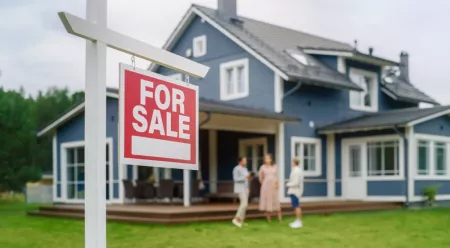Strata properties are popular forms of ownership in British Columbia. There are over half a million residential strata lots excluding mixed-use and commercial strata. Each strata corporation has an elected Board of Directors who make day-to-day decisions as per the provincial Strata Property Act. However, none of these matches having the right strata insurance. Contrary to what most people know and believe, obtaining the right strata insurance from a reputable company is not only essential but is also the key to managing a successful complex. Strata insurance can, however, be a bit complicated since there are two parties involved. But before we dive into strata insurance, let’s first discuss strata properties.
What is strata property?
Strata property refers to property that is divided into individually owned units that share common elements jointly owned by the unit owners. Strata property is like a business. It is important to note that every strata is unique and presents its own set of risk exposures. This is why you should work with your insurer to ensure your policy is tailored to your specific requirements.
START A QUOTE
What is the mandatory strata insurance in BC?
1. Property insurance
Strata property insurance provides coverage for the strata property, common property, and its contents as defined by the property title. This can include garden equipment, common areas, lifts, wiring, car parks, gardens, floors, ceilings, and even swimming pools. Strata property insurance provides coverage that an average home policy does not. Other common properties that are insured in strata property insurance include fixed parts in the strata property such as ducted air conditioning.
Strata property insurance must be for full replacement value. It must provide coverage for major perils including lightning, windstorm, explosion, strikes, impact by vehicles and aircraft, perils of fire, smoke, hail, water escape, riots or civil commotion as well as malicious acts and vandalism.
2. Liability insurance
Public liability insurance is mandatory for all strata property whether commercial, residential, or mixed-use strata property. Public liability strata insurance provides coverage for the injury or death to a person on the property as well as property damage where the owners could be held legally liable. For instance, if there is a spillage in the common area and a person slips, the owners will be held liable for any injuries that result from the accident. If such a claim is made, the insured should pay the excess amount if applicable under the policy.
What is the optional strata insurance?
● Earthquake insurance- While this is not mandatory strata property insurance, strata corporations located in areas that are prone to earthquakes are advised to purchase this insurance policy. When purchasing earthquake insurance, remember to discuss the cost of deductibles. This is because earthquake deductibles are shown as a percentage value of the strata property, usually 5%- 20% of the value of the property.
● Appliances- Appliances are not included in strata property insurance. While fixtures are covered in the insurance, they do not include items that can be removed from the building without damage such as refrigerators, microwaves, stoves, and washers. To protect yourself, it is important to purchase separate coverage for such property.
● Boiler and machine breakdown- Seeing that standard strata property insurance only provides coverage for damage to the equipment caused by issues such as fire, coverage for an accidental and sudden breakdown of electrical and mechanical equipment is vital.
● Errors and omissions insurance- This insurance policy provides coverage for expenses and liability incurred by council members when performing their duties as well as in the exercise of their powers.
● Volunteer accident coverage- This provides coverage for bodily injury sustained by a unit owner in their provision of voluntary services such as landscaping or minor repairs on behalf of the strata.
● Overland flooding insurance- While this is not mandatory strata property insurance, overland flooding insurance coverage is essential especially if the strata property is located in regions that are prone to flooding.
What insurance should strata owners purchase?
● Personal property- This provides coverage for household contents such as household goods,
clothing, furniture, and electronics.
● Improvements- Also referred to as betterments, this policy provides coverage for strata
improvements up to a given limit.
● Personal liability- This provides coverage for property damage or bodily damage caused to
other persons.
● Additional living expenses- Provides coverage for living expenses if a tenant is rendered
homeless due to an insured event.
● Owner-installed fixtures- Provides coverage for fixtures that can be moved with damage to
the building such as microwaves, ovens, and fridges.
● Additional coverage- This insurance will cater to the inadequacies in the strata corporation’s
insurance.
● Losses to other owners’ units or common property- This policy provides coverage for losses
to the common property where one owner is at fault.
What insurance should strata renters purchase?
Even with strata corporation’s insurance and strata owner’s insurance, renters are advised to
undertake necessary insurance policies including:
● Personal property insurance- This provides coverage for personal property including
household items such as electronics and furniture.
● Additional living expenses- These are above the normal costs of living that a renter may
incur in the event of an insured peril.
● Liability Insurance- This provides coverage for liability incurred to other parties where a
renter is at fault.
What factors impact the price of strata insurance?
Geographical location- Geographical location of strata property is one of the major factors that your
insurer will consider. For instance, if the strata property is located in areas that are prone to
flooding, the cost of insurance will be higher given the high risk of water damage.
History of claims- Is the strata property a high risk to insure? The higher the number of claims made,
the higher the cost of insurance will be. This could be due to inadequate maintenance adversely or
carelessness on the part of the management.
Types of construction materials used- The type of construction materials affects the cost of your
strata insurance. For instance, if the strata are constructed with fire-resistant materials, the
insurance cost will be lower compared to that constructed with non-fire-resistant material lice
wood. Ultimately, if strata property is constructed with expensive material, the insurance cost will
be higher given the high cost of replacement.
Bottomline
Strata insurance in BC may seem complicated. Some of the types of policies listed in this article are more geared towards commercial insurance, and some are more of a personal type of coverage. Reach out to us to get clarification on which types of strata insurance will best apply to your specific situation.



